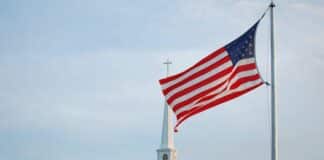One beautiful, sunny September morning, my wife and I embarked on a flight from New York City to Los Angeles. Little did we know that this ordinary journey would soon become a life-altering experience. Shortly after takeoff, we glanced out the airplane window and beheld the iconic Twin Towers of the World Trade Center. To our horror, we noticed that one of them was engulfed in flames. At that moment, our tranquil flight turned into a chaotic ordeal, emblematic of the terror that was about to unfold.
Before we could absorb the gravity of the situation, the pilot’s voice came over the intercom, directing us to land immediately. Our flight path was dramatically altered as we were diverted to Detroit. As we descended toward the runway, our minds were still unaware of the events that had transpired in New York, Washington, and Pennsylvania. It wasn’t until a fellow passenger behind us activated her cell phone that the harsh reality of the situation finally sank in. In a matter of seconds, she announced to the cabin that terrorists had ruthlessly attacked the World Trade Center. This shocking revelation marked the beginning of a day that would etch itself indelibly into the annals of history, a day that would forever change our nation, our sense of security, and our worldview.
Like countless other Americans, our minds were inundated with a whirlwind of conflicting emotions and thoughts as we grappled with the enormity of what we had just learned. Our immediate concern was for the safety of our fourteen-year-old daughter, who attended high school in a community near New York City. In those harrowing moments, we found ourselves unable to establish contact with her for several agonizing hours. Fortunately, she was safe, but we soon learned that thousands of others were not as fortunate. Among the casualties was the father of my daughter’s best friend, a valiant New York firefighter who had heroically entered the burning towers as others were fleeing.
The memories of that day are seared into the collective consciousness of our nation. Most of us have personal stories to recount—tales of lost friends and a shattered sense of security. The date 9/11 became etched in the hearts and minds of people around the world, serving as a stark reminder of the vulnerability of even the most powerful nations to acts of terrorism.
Ground Zero, especially, underwent a profound transformation. Not only was it physically altered, with the iconic Twin Towers reduced to rubble, but it was also spiritually changed. The solemnity of the site serves as a constant reminder of the profound loss suffered that day, as well as a testament to the resilience and unity of the American people.
While the attacks of 9/11 were an external assault on American soil, they also symbolized a deeper, more pervasive issue—the spread of lawlessness. The breach of what was perceived as a protective barrier was a chilling warning that the spirit of lawlessness had reached a new level, a level that had not been witnessed before on American shores.
However, as we reflect on this tragic chapter in our history, we must recognize that the spirit of lawlessness is not solely an external threat. It would be naïve to believe that America had remained untouched by this insidious force until that point. While we often hold ourselves up as a global example, a nation founded on principles of morality, justice, law, and even Christian values, our history is far from flawless.
Though marked by significant progress and achievements, our nation’s past is also marred by injustice, inequality, and violence. Slavery, the mistreatment of Native Americans, the internment of Japanese Americans during World War II, and civil rights struggles are but a few examples of our internal challenges. These episodes underscore the uncomfortable truth that America’s history, while founded on noble ideals, has not always lived up to them.
As we stand on the precipice of a new era, it is crucial to acknowledge that the spread of lawlessness is not solely an external threat. It is a challenge that exists within the fabric of our nation, and it requires our collective effort and introspection to overcome. Just as we came together as a nation in the wake of 9/11, we must come together now to address the deep-rooted issues that continue to divide us.
In conclusion, the absence of President Biden at the 9/11 memorial on the 20th anniversary of the attacks serves as a poignant moment of reflection. It prompts us to contemplate the state of our nation, the ongoing battle against lawlessness, and the imperative of unity and leadership in addressing our complex challenges. 9/11 was a stark reminder of our vulnerability, but it also demonstrated our resilience. As we move forward, let us remember the lessons of that fateful day and strive to build a more just, equitable, and united America.






